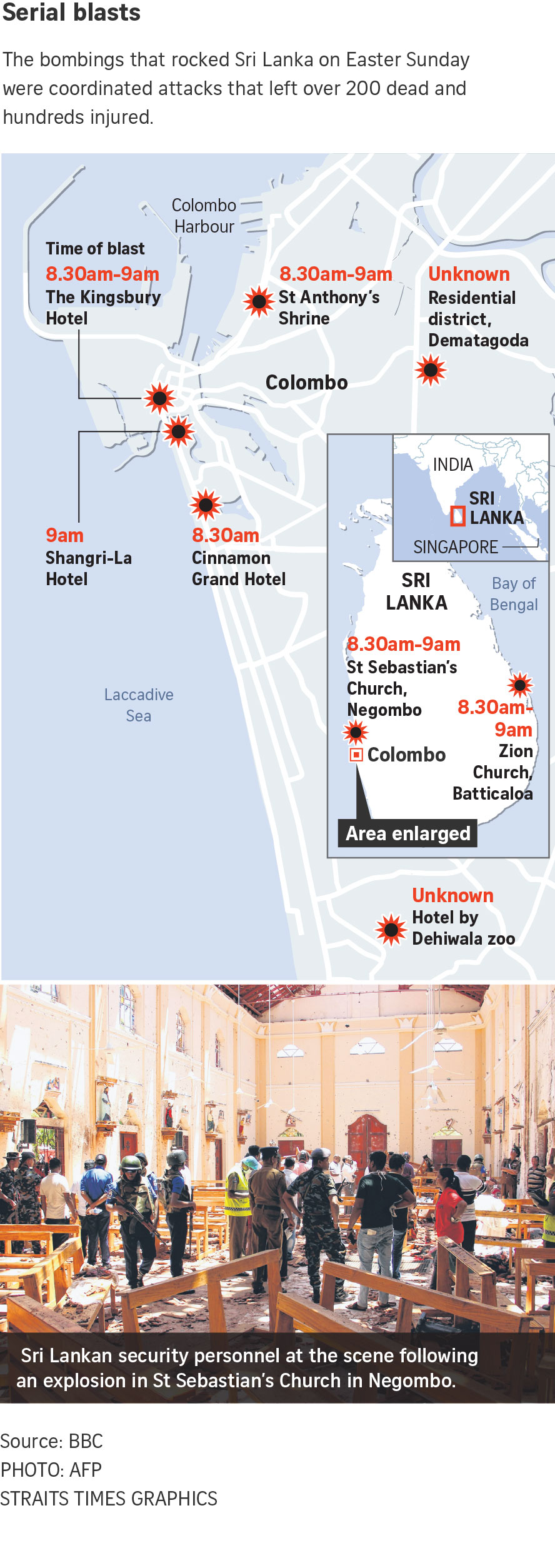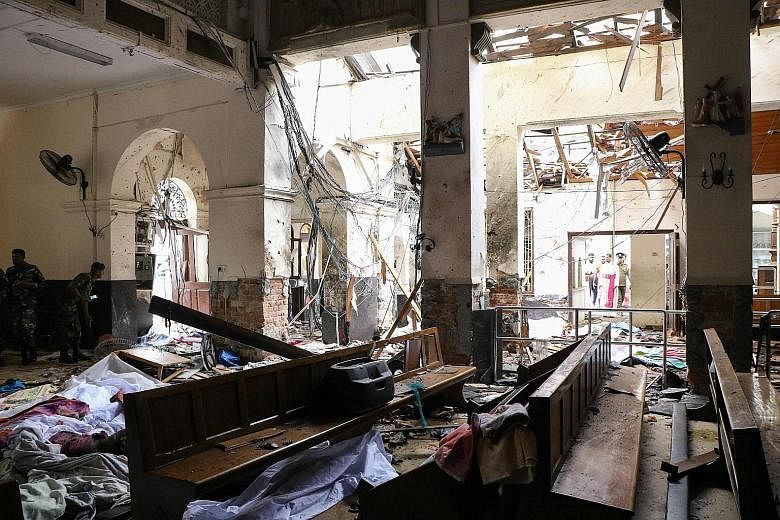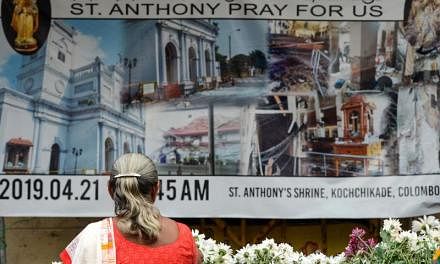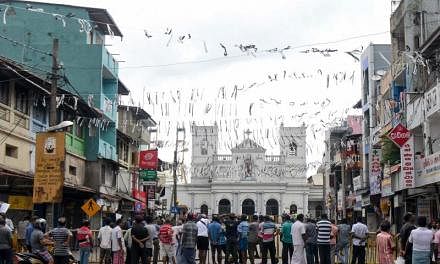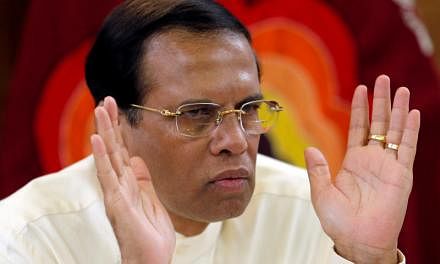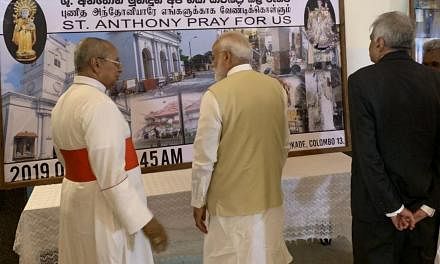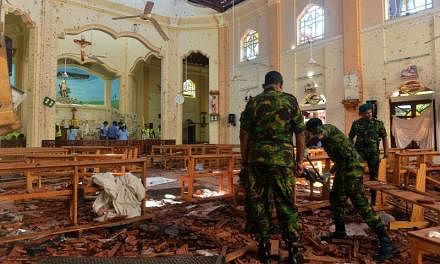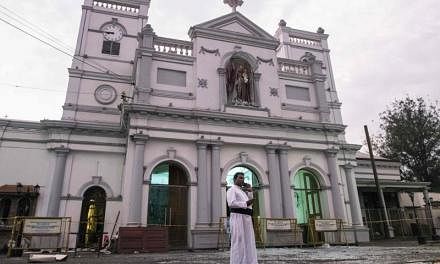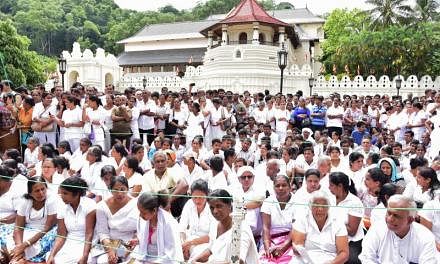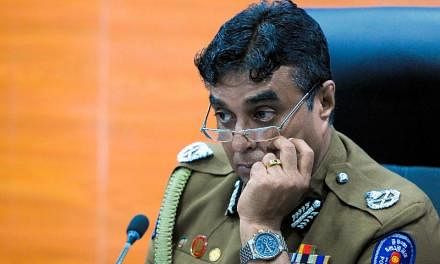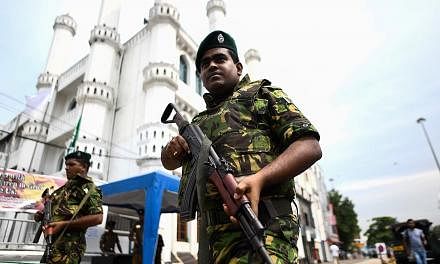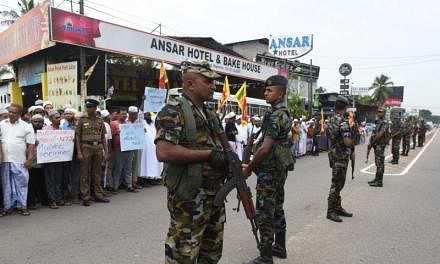Easter Sunday's calm was shattered in Sri Lanka by a series of coordinated explosions across different cities in the country that left at least 207 dead and hundreds of others injured.
Just before 9am, blasts ripped through three churches, where worshippers had gathered for Easter mass, and high-end hotels in Colombo frequented by foreign travellers. Police said two of the attacks were carried out by suicide bombers.
The authorities imposed a night-time curfew from 6pm local time last night (8.30pm Singapore time) to 6am local time. Access to major social media networks and messaging services, including Facebook and WhatsApp, was shut down, and there was heavy security at Colombo's airport, where travellers have been urged to report at least four hours before flight departures.
Churches in Negombo, Batticaloa and Colombo were targeted during the Easter services. Pictures posted on social media of St Sebastian's Church in Negombo, located north of the country's capital, showed a shattered ceiling and bloodied pews.
In Colombo, four hotels, including the Shangri-La, The Kingsbury and Cinnamon Grand, were targeted. An eighth blast occurred later at a house during a police raid.
Latest reports say at least 35 foreign tourists were killed in the attacks, including Americans, Europeans, Japanese and Chinese.
Agence France-Presse reported that the suicide bomber who had targeted the Cinnamon Grand Hotel had waited patiently in line for its buffet breakfast before setting off explosives strapped to his back. He had registered himself as "Mohamed Azzam Mohamed".
Nobody has claimed responsibility for the attacks and the authorities have not attributed the blasts to any organisation. However, seven individuals were arrested in a police raid in Colombo later in the afternoon. Their identities have not been revealed.
The bombings were the first major instance of terrorism in the country since the end of the civil war in May 2009 that saw the defeat of the separatist Tamil Tigers.
There is growing concern in Sri Lanka that yesterday's events could exacerbate underlying tensions between different religious groups in a country that has witnessed several clashes in recent years between the Buddhist majority and Muslim as well as Christian minorities.
Finance Minister Mangala Samaraweera told reporters the attacks were a "highly coordinated attempt at creating murder mayhem and anarchy in the country", and urged people to "unite with nerves of steel and defeat the heinous attempt to drag our country into the dark past".
In his tweet, Sri Lankan Prime Minister Ranil Wickremesinghe also called upon Sri Lankans to remain united and strong.
World leaders, including those from the United States, France, India, Britain and Singapore, have condemned the attacks.
President Halimah Yacob expressed her condolences to the families of victims. Prime Minister Lee Hsien Loong said the Republic condemns the blasts, calling them "senseless acts of violence".
Pope Francis in his address on Easter Sunday described the attacks as "horrendous", and expressed "heartfelt closeness to the Christian community... and to all the victims of such a cruel act of violence".
